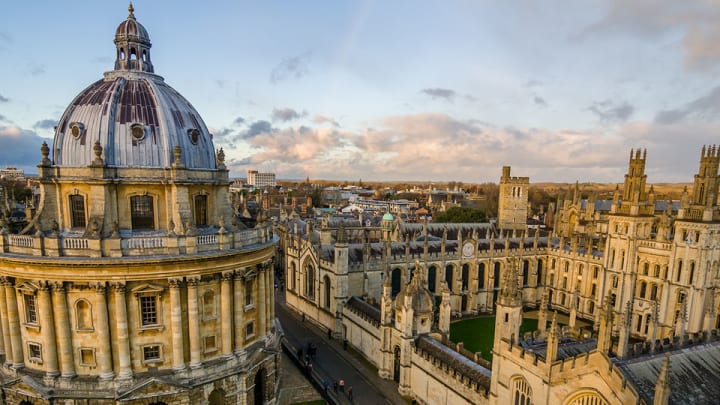Thomas More the Renaissance Man
Thomas More a great philosopher, saint, totally badass, and why he's classified as a Renaissance Man

A Renaissance Man is known as a very clever “jack of all trades” with an interest in humanism. It is very few and far between that, you find one and even harder to prove it. So this begs the question, is Saint Sir Thomas More a Renaissance Man? The answer is yes, Saint Sir Thomas More was, in fact, a Renaissance Man through More’s theology, humanistic works, and fields of study/work.
Theology is the study of the nature of God and religion and is a branch of philosophy. More was undoubtedly a loyal member to church throughout his life. More even moved to a monastery to be closer to God. It was also proven when in 1511 his wife Jane died and he asked the church for permission to marry Alice Middleton three months later (englishhistory.net). However, his perhaps most prominent achievement is in 1523 when More went to ‘war’ with Martin Luther.
To better know his enemy More learned Responsio ad Lutherum as a way to firmer grasp Luther’s works. This inevitably leads to Bishop Tunstall commissioning More’s help in March of 1528 to read all heretical writings in English to the poor and refute them (school.eb.com). More did so, reading Luther’s 95 Theses along with them.
More wrote most of his theology between April 1534 and May 1535 during his time in the Tower. Sir Thomas More was locked in the Tower for a year on the charge of treason for More’s refusal to acknowledge King Henry VIII in 1533 and his previous neglect to attend Boleyn’s coronation ceremony that same year lead to the charge of treason. It was on May 7, 1535, that Sir Thomas More was found guilty of treason and executed by way of beheading on London’s Tower Hill. This conversation was recorded from the trial between More and Lord Chancellor and Duke of Norfolk. “Lord Chancellor and Duke of Norfolk said, “You see now how grievously you have offended his Majesty; yet he is so very merciful, that if you will lay aside your Obstinacy, and change your Opinion, we hope you may obtain Pardon and Favour in his sight.”
Thomas replied, “Most Noble Lords, I have great reason to return thanks to your Honours for this your great Civility, but I beseech Almighty God, that I may continue in the Mind I am in, thro' his Grace, unto Death.” (law2.umkc.edu). It was for this reason that, in 1935, when More was declared a Saint by the Catholic church, he was officially announced as a martyr, more specifically, a reformation martyr (www.biography.com). More spoke of the evils and sins within society, saying “We cannot go to heaven on featherbeds”. A few of his writings sing of praise to God and his work: “The increasing influence of the Bible is marvelously great, penetrating everywhere. It carries with it a tremendous power of freedom and justice guided by a combined force of wisdom and goodness.” “Lord, give me a sense of humor so that I may take some happiness from this life and share it with others.” (More, www.azquotes.com). Theology requires a curious cleverness that begins his qualification as a Renaissance man.
Utopia by Thomas More

An image of More's original work Utopia before translation. Image courtesy of Google Images
More was largely regarded for his humanistic works. The best known of these works is Utopia, a philosophical book that touches subjects such as divorce, communism politics, women’s rights, and death that was published in 1516 (www.biography.com). Utopia is largely regarded as a satire of 16th century Europe, bringing a cleaver and humorous twist to the otherwise intellectual book. In Utopia, More was greatly influenced by Greek ancient philosophers. In particular, Plato's’ republic and Aristotle’s politics appeared many times in the subject matter and commonwealth aspects of the book. Greek satirist Lucian also made an appearance, greatly influencing the introductory sections in the satire, irony, and wordplay. Leonardo Bruni, a famous Italian humanist during the Renaissance period, was a great influence to More. His application of ancient political ideas would create the ideal state in the setting of Utopia (owlcation.com). More is credited as coining the term utopia due to this book.
More's book History of King Richard III, written in both Latin and English, went on to influence Shakespeare in his plays (englishhistory.net). Throughout his writing career, More published most of his books in both Latin and English so that everyone can read them if they are uneducated or not.
More also worked closely with Erasmus through his adult career; on Erasmus’s second visit to London the two set to work on translating Lucian’s works into Latin, sometime between 1499 and 1509 (www.biography.com). It was at that time that Erasmus learned that More knew Old Latin, theorized from his time at Oxford University. The two friends often shared their work and enjoyed bouncing ideas off each other. To further their humanistic works they heavily influenced their own ideas and material off of Burni.
What, perhaps, qualifies More the best as a humanist is his studies. From 1492 to 1494 More attended Oxford University where he studied Greek and Latin literature as part of his Greek and Latin studies (biography.com).
became a social philosopher. John More, Thomas’s father called him back to London in 1494 to begin studying common law. In 1496 More joined Lincoln's Inn, an English Legal society and become a lawyer in 1501, following in his father’s footsteps. King Henry VIII appointed More as his official advisor and chancellor which was the highest position in England at that time in 1500 (www.biography.com). In 1503 Thomas heard the calling of the church. He moved to a monastery outside of London to focus on his studies of God, Latin, and Greek with the goal of becoming a monk. During that time More continued to study the law and eventually moved back to London.
In 1504 More got into politics. He was elected into parliament in 1504, opposing King Henry VII grant for money from the people, dropping it to a third of the price. Due to this More’s father, John More was imprisoned in the Tower until a hefty price was paid. He was King Henry VII’s treasurer and knighted in 1521. In 1523 More was elected the Speaker of the House of Commons (school.eb.com). December 31, 1525, to November 3, 1529, More was elected Chancellor of the Dutchy of Lancaster. More was appointed Lord Chancellor October 29, 1529, to May 23. However, his career in politics ended abruptly in 1533 when he refused to attend the coronation of Anne Boleyn (school.eb.com). This lead to a deeper problem; Thomas More disagreed with King Henry VIII about his marriage to Anna. The two argued profusely over the subject when More came back from a trip to the French embassy in 1527. Reports say that Henry ‘opened the bible to More’ the argument, daring More to tell him where the holy book said he couldn’t divorce his wife for Anne. Throughout his time in politics, More worked eight years as undersheriff, key councilor, proved himself an impartial judge, and able administrator (englishhistory.net).
Oxford University and Mores Education from a Young Age

Oxford University where More studied Greek and Latin (1492-1494). Image courtesy of Google Images.
What, perhaps, qualifies More the best as a humanist is his studies. From 1492 to 1494 More attended Oxford University where he studied Greek and Latin literature as part of his Greek and Latin studies (biography.com).
From a very young age, More was thrust into different fields of study. More started off as a page for John Morton, future cardinal, from 1490-1492. Morton suggested More for a place at Oxford University and was accepted in 1492. During his time at Oxford, he spent two years mastering formal logic, Latin and writing comedies, and music, while he dabbled in Greek and Latin literature (www.biography.com). During that time More became a social philosopher.
John More, Thomas’s father called him back to London in 1494 to begin studying common law. In 1496 More joined Lincoln's Inn, an English Legal society and become a lawyer in 1501, following in his father’s footsteps. King Henry VIII appointed More as his official advisor and chancellor which was the highest position in England at that time in 1500 (www.biography.com). In 1503 Thomas heard the calling of the church. He moved to a monastery outside of London to focus on his studies of God, Latin, and Greek with the goal of becoming a monk. During that time More continued to study the law and eventually moved back to London.
More in Politics

Image courtesy of Google Images
In 1504 More got into politics. He was elected into parliament in 1504, opposing King Henry VII grant for money from the people, dropping it to a third of the price. Due to this More’s father, John More was imprisoned in the Tower until a hefty price was paid.
More was King Henry VII’s treasurer and knighted in 1521. In 1523 More was elected the Speaker of the House of Commons (school.eb.com). December 31, 1525, to November 3, 1529, More was elected Chancellor of the Dutchy of Lancaster. More was appointed Lord Chancellor October 29, 1529, to May 23.
However, his career in politics ended abruptly in 1533 when he refused to attend the coronation of Anne Boleyn (school.eb.com). More's deep-seated religious beliefs didn't allow him to believe in divorce nor did it allow him to agree with the king's desire to create a new religion. This lead to a deeper problem; Thomas More disagreed with King Henry VIII about his marriage to Anne. The two argued profusely over the subject when More came back from a trip from the French embassy in 1527.
Reports say that Henry ‘opened the bible to More’ during the argument, daring More to tell him where the holy book said he couldn’t divorce his wife for Anne. Throughout his time in politics, More worked with the king and the two could be even be described as friends. However, this disagreement tore an unfixable hole in their relationship which would only escalate. But during his time in politics More worked eight years as undersheriff, key councilor, proved himself an impartial judge, and able administrator (englishhistory.net).
His Work After
More was married in 1505 to Jane, a poor farmer, who he taught to speak fluent Latin (englishhistory.net). He opened domestic schools where most of his charges where girls and gave them a refined education of the classical and Christian variety.
More was also an author, best known for his book ‘Utopia’. Utopia was published in 1516, More was responsible for coining the term ‘utopia’ at that time as well (owlcation.com). Before this (somewhere between 1513-1518) he started writing History of King Richard III. 1529-1533 More published seven books of polemics in his war against Martin Luther’s reformation. More became a saint in the Catholic church in 1935, bringing an end to his many careers and fields of study (www.biography.com). From 1490 to 1533 More was a very busy man with many different occupations over the course of his career such as being a page, studying at Oxford University, becoming a lawyer, politician, teacher, author, and more; concluding that he makes a strong case for the ‘jack of all trades’ portion of the qualifications to be a Renaissance Man.
Bibliography
Baker-Smith, Dominic. “Thomas More.” In Stanford Encyclopedia of Philosophy. Last modified March 19, 2014. Accessed March 2, 2017. https://plato.stanford.edu/entries/thomas-more/#DefHum.
Crown v. Sir Thomas More. Accessed March 2, 2017. http://law2.umkc.edu/faculty/projects/ftrials/more/moretrialreport.html.
Hanson, Marilee. Sir Thomas More: Biography, Facts and Information. February 22, 2015. Accessed March 2, 2017. http://Thomas More Utopia—Humanism in the Renaissance.
Linder, Douglas O. “Thomas More Trial (1535).” Famous Trials. Accessed February 24, 2017. http://www.famous-trials.com/thomasmore.
Marc’hadour, Germain P., Mr. “Sir Thomas More (English Humanist and Statesman).” In Britanica Online, by Moreana Quarterly. Accessed March 2, 2017. http://school.eb.com/?target=%2Flevels%2Fhigh%2Farticle%2FSir-Thomas-More%2F53689.
Oxford University. “Famous Oxonians.” University of Oxford. Accessed March 2, 2017. http://www.ox.ac.uk/about/oxford-people/famous-oxonians.
Salmon, Thomas, and Emlyn Sollom. “A complete collection of state-trials, and proceedings for high-treason, and other crimes and misdemeanours; from the reign of King Richard II. to the end of the reign of King George I.” 1730. Accessed March 2, 2017. https://archive.org/details/completecollecti04salm.
“Sir Thomas More: Biography, Facts and Information.” English History. Last modified February 22, 2015. https://englishhistory.net/tudor/citizens/sir-thomas-more/.
“Thomas More.” Wikipedia. Accessed February 16, 2017. https://en.wikipedia.org/wiki/Thomas_More.
“Thomas More Quotes.” AZ Quotes. Accessed March 3, 2017. http://www.azquotes.com/author/10365-Thomas_More.
Thomas More Utopia—Humanism in the Renaissance. June 14, 2016. Accessed March 2, 2017. https://owlcation.com/humanities/Was-Thomas-Mores-book-Utopia-a-typical-product-of-Renaissance-humanism.
About the Creator
Lilli Behom
I have no idea what I'm doing but I'm always down for spooks.






Comments
There are no comments for this story
Be the first to respond and start the conversation.